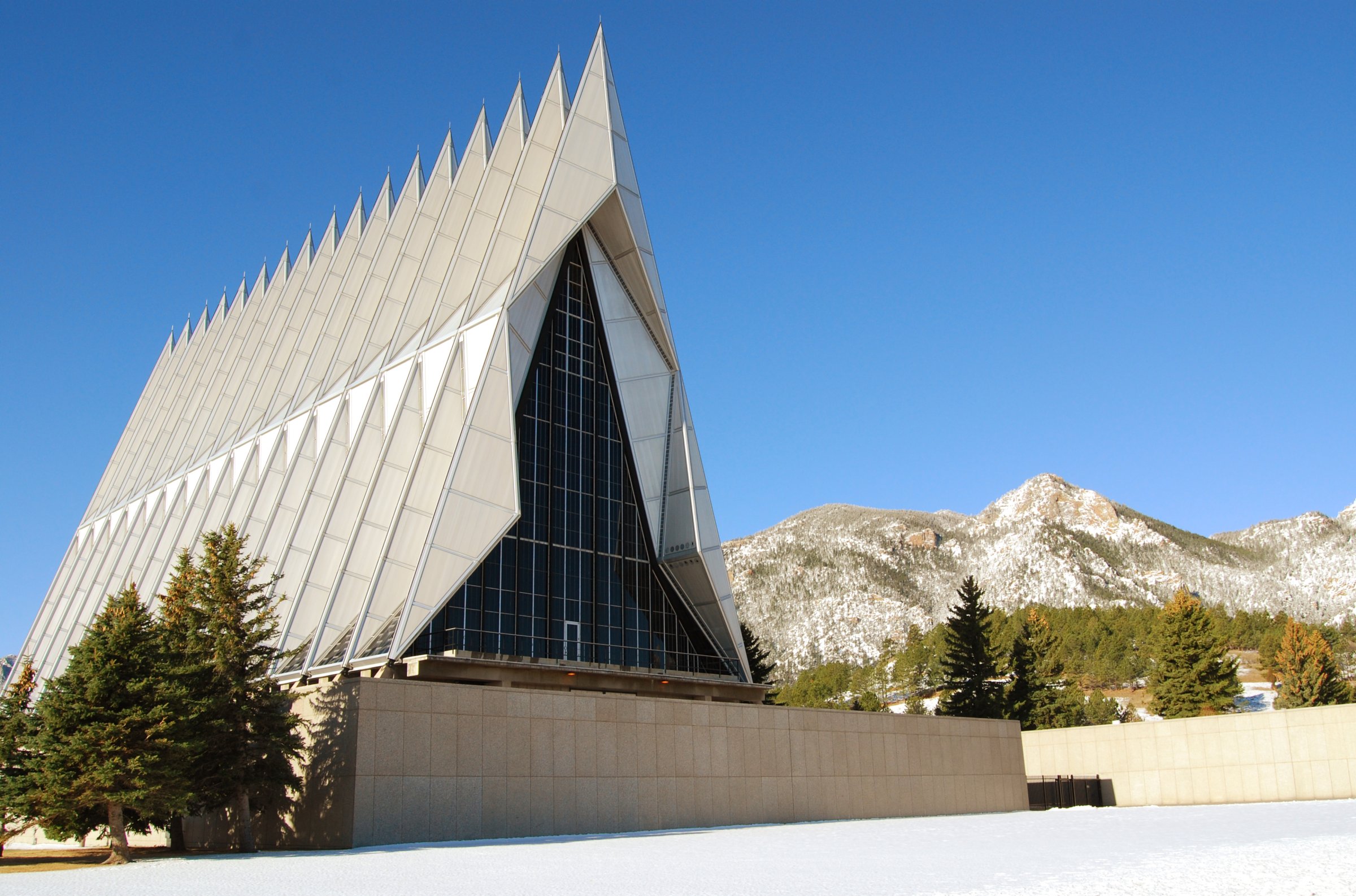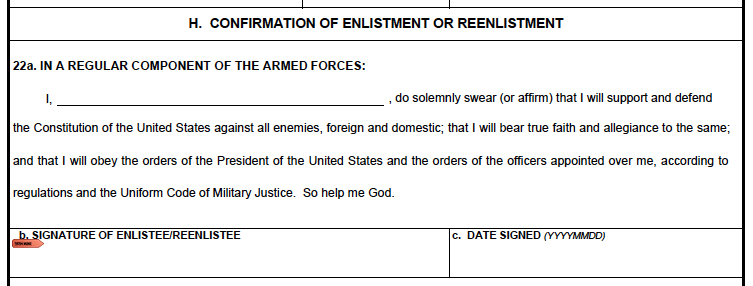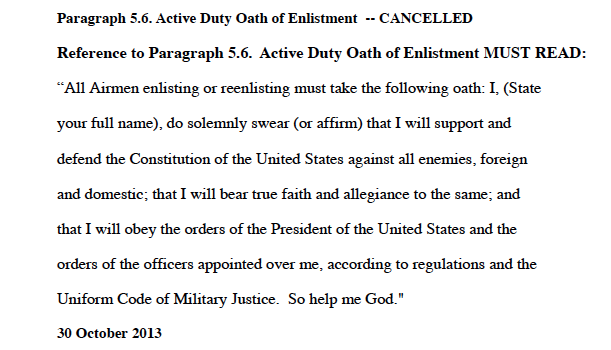
As the U.S. military battles Islamic zealots overseas, there’s a similar, but much more genteel, religious fight now underway inside the U.S. Air Force.
The service has told a technical sergeant with more than 10 years of service that he will not be permitted to re-enlist unless he declares “so help me God” on his re-enlistment contract.
“He submitted his re-enlistment contract in August and crossed out” so help me God, says Monica Miller, a lawyer with the American Humanist Association, who is representing the unidentified airman. “He was told he had to swear to those words, or else he would have to leave the Air Force.”

“We have been in compliance with Title 10 of the U.S. Code,” which spells out the re-enlistment oath, says Captain Brooke Brzozowske, an Air Force spokeswoman. But the Air Force has kicked the matter up to the office of the Pentagon’s top lawyer for a ruling. “The airman’s term of service expires in November 2014,” Brzozowske adds. “He has until this time to complete the Department of Defense Form 4 in compliance with the Title 10 U.S.C. Section 502.”

The airman is based at Creech Air Force Base, Nevada, and has chosen to remain anonymous. “He’s afraid of retaliation and hostility from the public,” Miller says. She says she will file suit in the case in federal court later this month if the Air Force continues to insist on her client swearing the oath.
The latest skirmish is part of a long-standing American tradition of arguments over religion, which ranges from uttering “under God” in the Pledge of Allegiance to displaying religious symbols ranging from crosses to the Ten Commandments on public land. The Air Force has long been troubled by religious tensions, especially at its Colorado academy.
But, according to Miller, this problem is of the Air Force’s own making. Before last fall, Air Force regulations pertaining to the enlistment oath noted that “airmen may omit the words `So help me God’, if desired for personal reasons.”

But the Air Force modified that section last Oct. 30, according to Miller, and eliminated that option:

Miller says she finds the Air Force’s position surprising, because she handled a similar case last year for someone based at Maxwell Air Force Base, Alabama. “They said they’d consulted their legal department, which confirmed that they could not require an atheist to say that language,” Miller recalls. “So it was very puzzling to us when this issue came up again a year later and the Air Force had a completely different response.”
Eugene Fidell, who lectures on military law at Yale University and co-founded the National Institute of Military Justice, says it shouldn’t take long for the Department of Defense general counsel to strike down the requirement that airmen declare “so help me God” when they re-up. “That provision cannot be considered mandatory,” he says. “It’s clearly a test oath, and test oaths are forbidden by Article 6 of the Constitution.”
The bottom line of Article 6: “…no religious Test shall ever be required as a Qualification to any Office or public Trust under the United States.”
More Must-Reads from TIME
- Inside Elon Musk’s War on Washington
- Meet the 2025 Women of the Year
- The Harsh Truth About Disability Inclusion
- Why Do More Young Adults Have Cancer?
- Colman Domingo Leads With Radical Love
- How to Get Better at Doing Things Alone
- Cecily Strong on Goober the Clown
- Column: The Rise of America’s Broligarchy
Contact us at letters@time.com